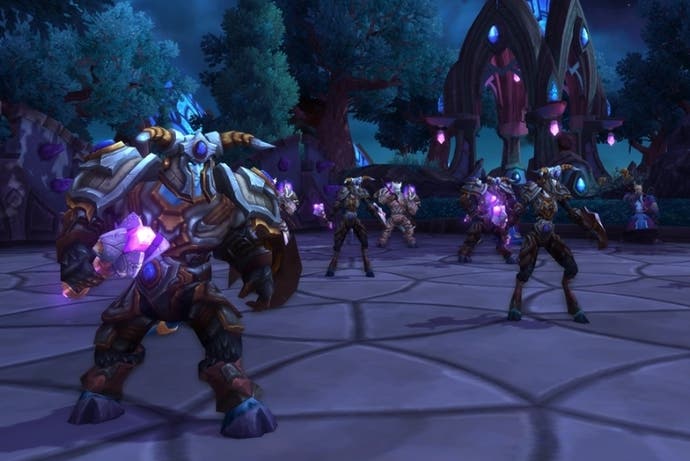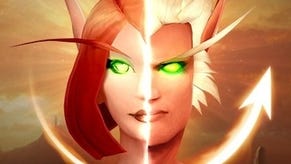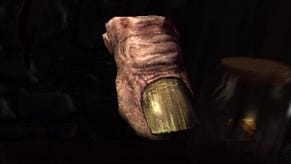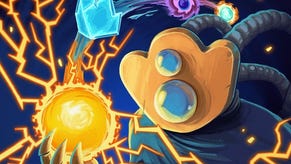Gaming's middle-aged crisis
Audiences are getting older - but what happens when the games do too?
When people started writing comic books I'm not sure they all believed that comic books were going to last very long. They certainly wrote them like they didn't believe that, anyway, as the youthful four-colour energy of a brand new art form was often chained to thrillingly short-termist thinking. Promising villains were killed off with ink-smudged abandon. Unlikely plot twists piled on unlikely plot twists. No care was spent on tomorrow or the day after. Kabam!
Tomorrow eventually arrived, however, and the whole teetering edifice slowly calcified into lore. Finally, decades later, the lore needed tidying up.
Hence the retcon was born. Apparently that's short for retroactive continuity, and it's essentially a spring clean for musty old mythology, or an MOT that gets Batman, or Superman, or Squirrel Girl back on the road (and living in the right dimension). DC often bustles this business in with a massive series-spanning event called a Crisis - a huge set-piece in which you can see the whole fabric of funny-book space-time warping and shifting and then settling again - but in truth there's an infinite number of ways to do retconning, and an infinite number of elements that might require it. Comics need retconning now and then, but so do films, TV series, books. Anything very elaborate that has been built up in haphazard bursts might require retconning one day. Anywhere energy and enthusiasm have trumped a long-term plan a crisis - or a Crisis - could be waiting.
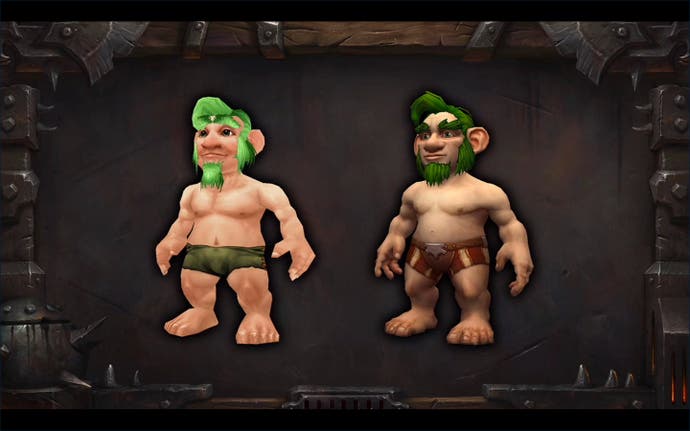
And they don't always involve story, either. Beneath the new quests, the new areas, and the giddy prospect of player housing, World of Warcraft's getting a quiet retconning with its forthcoming Warlords of Draenor expansion. RPGs are, after all, in part about watching the numbers get bigger, and 10 years of this has lead to some pretty big numbers indeed. "That's led us to a point at the end of Mists of Pandaria where players are walking around with a million hit-points and have 30,000 intellect," explained Ion Hazzikostas, WOW's lead encounter designer, when I met him a few weeks ago. "Bosses are running into the limits of a 32-bit integer on their health where they can't have more than 2.1 billion health, and they need more than 2.1 billion health in order to survive long enough to be a boss. I guarantee that's not something that the original WOW development team thought about in 2003 when they were planning out the original number curves for their systems. That comes with age. It's kind of like the Y2K problem."
Then he shrugged, as if to say, what can you do? 10 years spent on the frontlines of player desire. 10 years of incremental changes, incremental patching. 10 years of working towards the next expansion, and then seeing what happens after that.
WOW's already a pretty interesting game, but it's this particular element that really fascinates me about it. Like comic books, a medium that somehow made it to their 70th birthdays or so and then had to get their houses in order, WOW's reached the stage where its very longevity - often built upon very early decision-making - is starting to cause intriguing problems. Along with the likes of Everquest and Ultima Online, it's one of the first big games I can think of that's lived into its middle-age. Or rather, it's one of the first big games that has hit its middle-age while still being a live, regularly updated concern for millions of active players. It's a pioneer, and also a case study: this is what happens when online games start to get old.
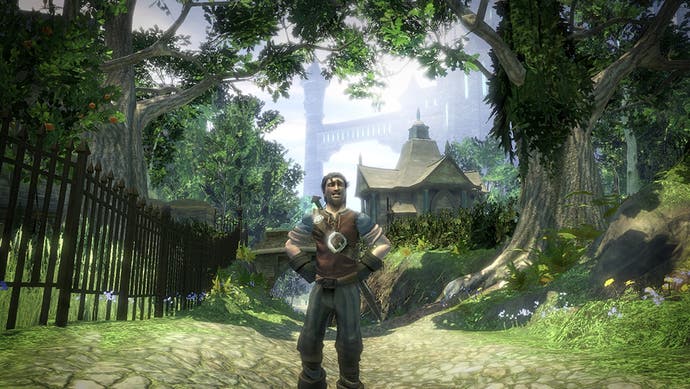
And some of what happens is truly weird. Take boosting players. Everyone who buys Draenor will be granted a token that allows them to boost a character to level 90 so that they can leap right into the new content if they're lagging behind. You'll also be able to buy additional character boosts for £40. Many have noted that this is not a small fee and for a rather weird practice - you're paying to skip out on adventuring, which is never going to sit quite right. But while there's no doubt Blizzard's accountants are pretty happy about things, I actually did believe Hazzikostas when he told me the steep price is there, in part, to act as a disincentive. Old players may be coming back with Draenor, and some of them will want to skip right to the endgame. But some of them won't, and a low price might devalue the 100 hours of, you know, playing World of Warcraft to get there via the scenic route. MMOs are all about the scenic route, aren't they? A low price might help devalue the game itself.
I was talking to Eurogamer's deputy editor Oli Welsh about this the other morning, and he described the boost as being gaming's stairlift - and the boost is not alone in this regard. A few years back, everybody in Azeroth had so many skills that they could barely see the action any more amidst the UI and the fizzing particles and those 2.1 billion health points. Blizzard's absolutely brilliant at the steady trickle of new abilities, new options, new treats - so good, in fact, that it's managed to keep a game in play to an age where all that new stuff flooding in is starting to leave it bloated. Perhaps that's how middle-age works for a game that scales by offering its players shinier and better stuff. You creak, just as you do in human middle-age, but it's not the mileage - it's the escalation. It's all the clutter you picked up along the way that once made things more fun and now just makes things unwieldy.
So what does middle-age mean for gaming? For WOW, I think it's going to be really interesting, as systems creators need to lean more heavily on the parts of game design that have always aped economics anyway. They may need to think of disincentives and - whisper it - things that operate like taxes, and they'll need to work out how to make this stuff fun and not gougey or disempowering to boot. For the rest of games, for teams who are presumably working on projects that they'd like to see thriving a decade from now, it must just give very serious pause.
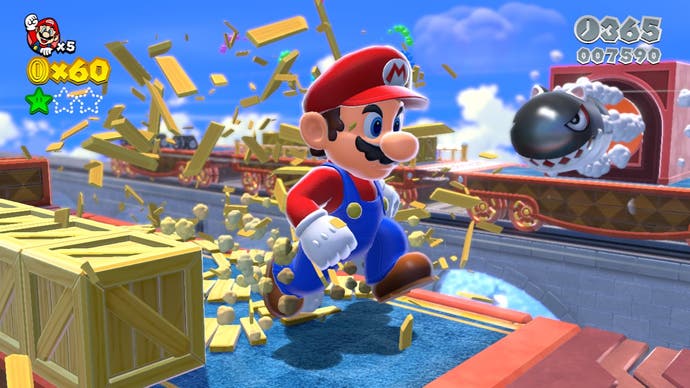
Complicating all this is that part of WOW's charm is that it's dealing with the very fact that it hasn't always planned ahead. There's the potential, I think, for difficult middle-age problems to lead to creative and entertaining solutions - albeit ones that hopefully don't have a £40 price tag attached. Equally - or oppositely - there's nothing more obnoxious than a game that's clearly been built for the ages from the very start. Just think of the slight sense of distaste people felt when Destiny's long-term content plan accidentally leaked and a glorious space adventure was revealed as being a product - a list of expensive bullet points on a spreadsheet. All games are products, of course, but I still want to believe the best games can retain their scrappy youthfulness and their impetuous nature as they grow more complex. I want to believe that the best games realise things could fall apart at any time, so why not live for the moment?
For games, then, as for comics, I suspect growing up is a tricky business. You mature alongside your audience and alongside relationships that can fundamentally shift as they deepen, and that makes planning too much as dangerous as not planning at all. Play things right, and somewhere between the interface and the player the meta-game can keep evolving, as it has with Starcraft, say, or DOTA. Over the next few years, we're going to see a lot more middle-aged games, anyway. That means a lot more crises, and perhaps a lot more stairlifts, too.
